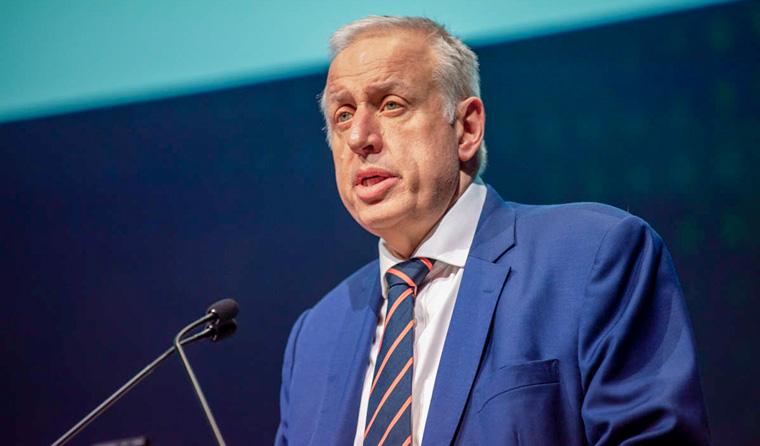News
Second WA politician questions GP involvement in assisted dying scheme
The MP argued only psychiatrists and geriatricians can determine a patient’s decision-making capacity in relation to voluntary assisted dying.
 The bill has been exposed to significant debate in the WA Parliament.
The bill has been exposed to significant debate in the WA Parliament.
Western Australian Liberal MP Nick Goiran, one of the most vocal opponents to the Voluntary Assisted Dying Bill 2019, made the comments during an extended debate in the Legislative Council as he argued for one of the 89 amendments he has put forward during the legislative process.
Quoting evidence provided by the Chief Psychiatrist in WA to the Joint Committee on End of Life Choices in 2017, Mr Goiran said the question of whether GPs have the ability to draw conclusions related to a patient’s decision-making capacity is ‘extremely variable’.
‘They are the people seeing people in nursing homes. They are seeing lots of individuals who are incapacitous (sic) or may have capacity or not. So, they are seeing lots of it but they are not always thinking in that paradigm; they are thinking in more broad, holistic paradigms,’ he said.
‘In the situation where a GP is treating mental illness, assisting with the palliative care and making potential capacity assessments that are not leading to the potential death of the person, that may be reasonable.
‘But the stakes go up when you are saying that someone is going to die. I do not think it is reasonable to have a GP make that capacity assessment at that point.’
However, WA Minister for Disability Services Stephen Dawson told the house he had since received correspondence from the Chief Psychiatrist that suggested this opinion had ‘evolved’.
‘Doctors who are trained and have ongoing appropriate credentialing may be appropriate, with the option to refer to a relevant psychiatrist in complex or challenging cases,’ he said.
‘The Royal Australian and New Zealand College of Psychiatrists made clear that although the practitioner’s assessing capacity needs relevant expertise, they do not need to be a specialist, and that capacity assessment is not solely in the domain of psychiatrists.
‘Psychiatrists are rarely the most appropriate clinician to do capacity assessments.’
Mr Goiran is the second WA MP to question whether GP involvement in the scheme is appropriate, after WA Labor member Martin Pritchard raised similar doubts last month.
At the time, RACGP President Dr Harry Nespolon strongly rebuked Mr Pritchard, and he told newsGP Mr Goiran’s recent comments were similarly offensive.
‘Just like his colleague on the other side of the chamber Martin Pritchard, Mr Goiran is completely out of touch with modern general practice and should visit his local GP to learn more about the profession,’ he said.
‘GPs know their patients and provide complex and holistic care. They are perfectly positioned to assess whether patients have the decision making capability to access voluntary assisted dying.
‘Let’s hope this debate in Western Australia doesn’t feature any more misguided and insensitive comments about the role of GPs, we have had enough already.’

RACGP President Dr Harry Nespolon called the comments misguided and insensitive.
The WA bill has been heavily scrutinised in the state’s upper house, resulting in major changes to the original legislation, despite it easily passing through the Legislative Assembly in September.
Tuesday’s debate saw the proposed number of amendments reduced from 327 to 142, but also some major concessions from the WA Government, which had previously opposed further changes to the legislation.
One of the amendments, introduced by the Government, would reduce the number of healthcare professionals able to propose voluntary assisted dying to a patient.
Before its introduction, any registered health practitioner, including optometrists, pharmacists and Chinese medicine practitioners, could raise the subject. However, the amendment still falls short of Labor MP Tony Buti’s proposal to bring the laws into line with Victorian legislation.
Dr Buti, a supporter of voluntary assisted dying, proposed the change in an attempt to protect people with disability, as well as Aboriginal and Torres Strait Islander people considered vulnerable because of language or cultural differences.
Upon announcing the ‘final package’ of amendments, WA Health Minister Roger Cook said the Government had ‘listened to the arguments surrounding the Voluntary Assisted Dying Bill’.
‘These amendments are the result of considered collaboration … we know there is strong support in WA for laws that legalise voluntary assisted dying, so it is important we provide clarity and reassurance for those who will have direct involvement in these decisions,’ he said.
The WA Government’s other amendments include:
- the need for the assessment of the patient by the second consulting practitioner to be independent
- that doctors may have regard for the patient’s existing medical history
- that a medical consultation is the only avenue to make an initial request for voluntary assisted dying
- making it mandatory for both practitioners to report the palliative care options available to the patient to the Voluntary Assisted Dying Board
- making it possible for a family member to be one witness to a patient’s written declaration
- ensuring medical practitioners will no longer be liable for a fine if they fail to lodge the first request form
- making it explicit that a doctor who acts without reasonable care and skill will not be protected from claims of negligence.
The Government is hopeful of passing the legislation by Christmas, but any amendments made to the bill in the Legislative Council will mean it needs to be reconsidered in the Legislative Assembly before becoming law.
Login below to join the conversation.
general practice voluntary assisted dying Western Australia
newsGP weekly poll
How often do patients ask you about weight-loss medications such as semaglutide or tirzepatide?